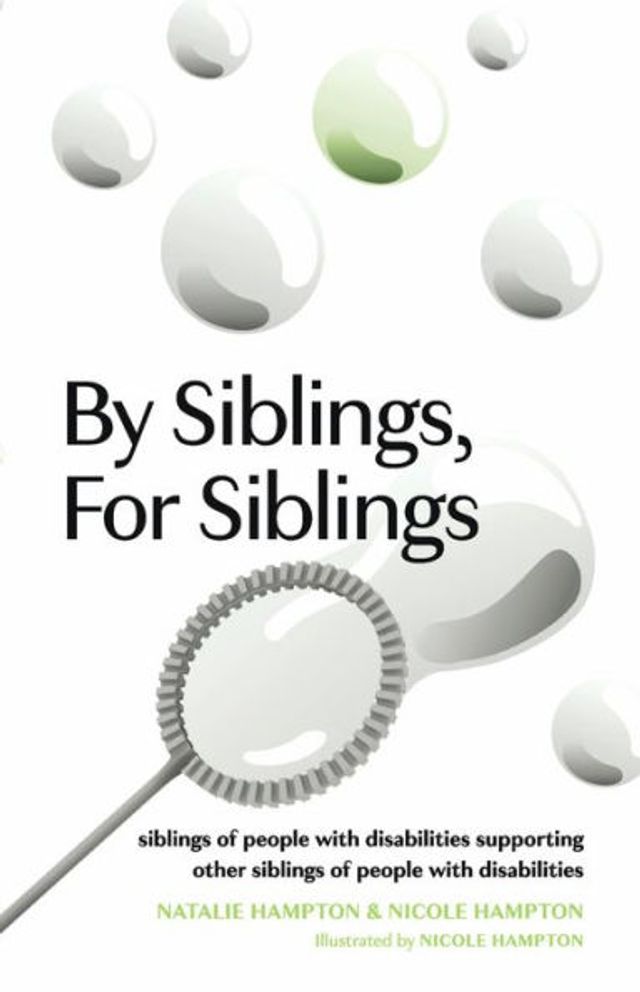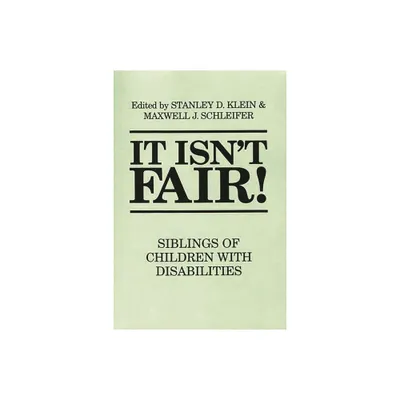Home
Working with Survivor Siblings Psychoanalysis: Ability and Disability Clinical Process
Loading Inventory...
Barnes and Noble
Working with Survivor Siblings Psychoanalysis: Ability and Disability Clinical Process
Current price: $170.00


Barnes and Noble
Working with Survivor Siblings Psychoanalysis: Ability and Disability Clinical Process
Current price: $170.00
Loading Inventory...
Size: Hardcover
*Product Information may vary - to confirm product availability, pricing, and additional information please contact Barnes and Noble
Working with Survivor Siblings in Psychoanalysis: Ability and Disability in Clinical Process
explores a previously neglected area in the field of psychoanalysis, addressing undertheorized concepts on siblings, disabilities and psychic survivorship, and broadening our conceptualization of the enduring effects of lateral relations on human development.
What happens to a person’s sense of self both personally and professionally when they grow up alongside a severely disabled sibling? Through a series of qualitative interviews held between the author and a sample of psychoanalysts, this book examines both the unconscious experience and the interpersonal field of survivor siblings. Through a trauma-informed contemporary psychoanalytic lens, Dobrich combines data analysis, theory-building, memoir, and clinical storytelling to explore and explicate the impact of lateral survivorship on the clinical moment, making room for a contemporary and nuanced appreciation of siblings in psychoanalysis.
Working with Survivor Siblings in Psychoanalysis: Ability and Disability in Clinical Process, will be of immense interest and value to psychoanalysts and other mental health professionals, and for all therapists who work with and treat patients that are themselves survivor siblings. Uniquely integrating both academic and memoir writing, this book will also engage those building theory around the implications of the analyst’s subjectivity on clinical processes.
explores a previously neglected area in the field of psychoanalysis, addressing undertheorized concepts on siblings, disabilities and psychic survivorship, and broadening our conceptualization of the enduring effects of lateral relations on human development.
What happens to a person’s sense of self both personally and professionally when they grow up alongside a severely disabled sibling? Through a series of qualitative interviews held between the author and a sample of psychoanalysts, this book examines both the unconscious experience and the interpersonal field of survivor siblings. Through a trauma-informed contemporary psychoanalytic lens, Dobrich combines data analysis, theory-building, memoir, and clinical storytelling to explore and explicate the impact of lateral survivorship on the clinical moment, making room for a contemporary and nuanced appreciation of siblings in psychoanalysis.
Working with Survivor Siblings in Psychoanalysis: Ability and Disability in Clinical Process, will be of immense interest and value to psychoanalysts and other mental health professionals, and for all therapists who work with and treat patients that are themselves survivor siblings. Uniquely integrating both academic and memoir writing, this book will also engage those building theory around the implications of the analyst’s subjectivity on clinical processes.


















